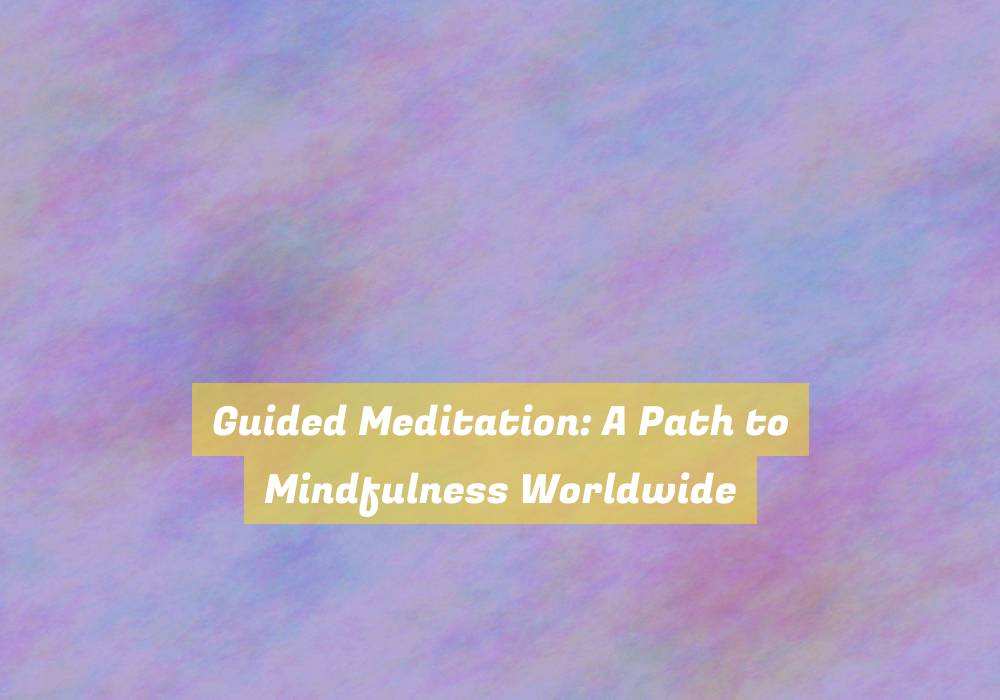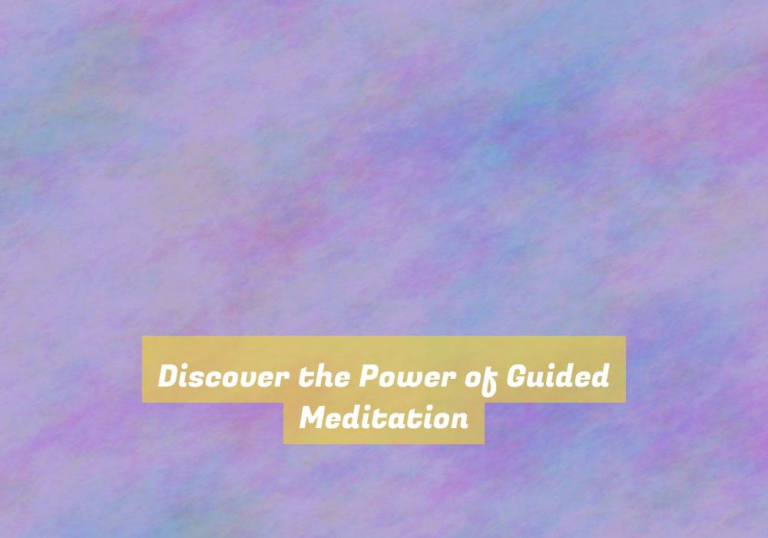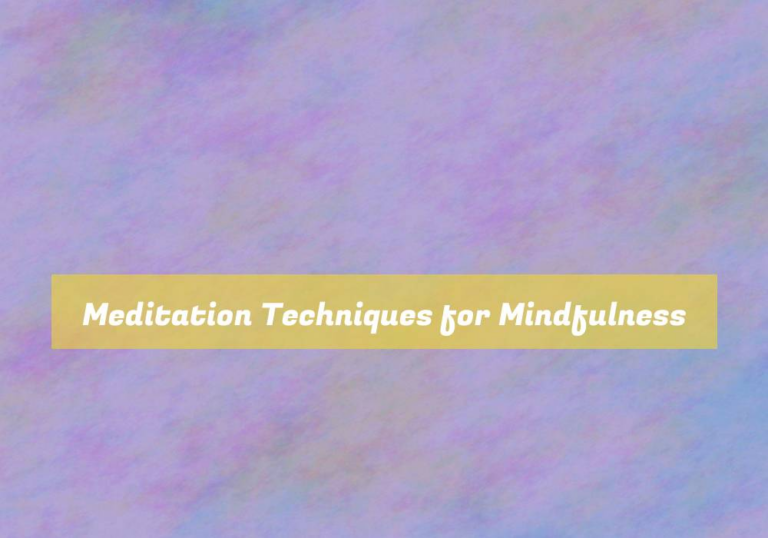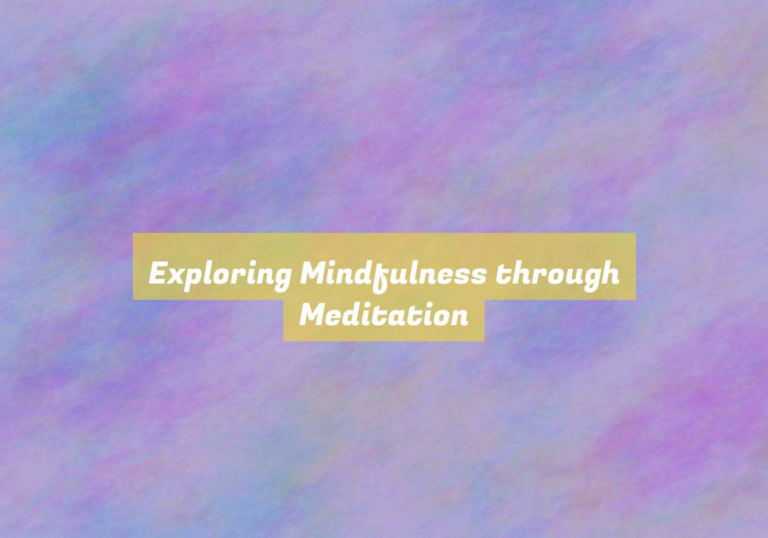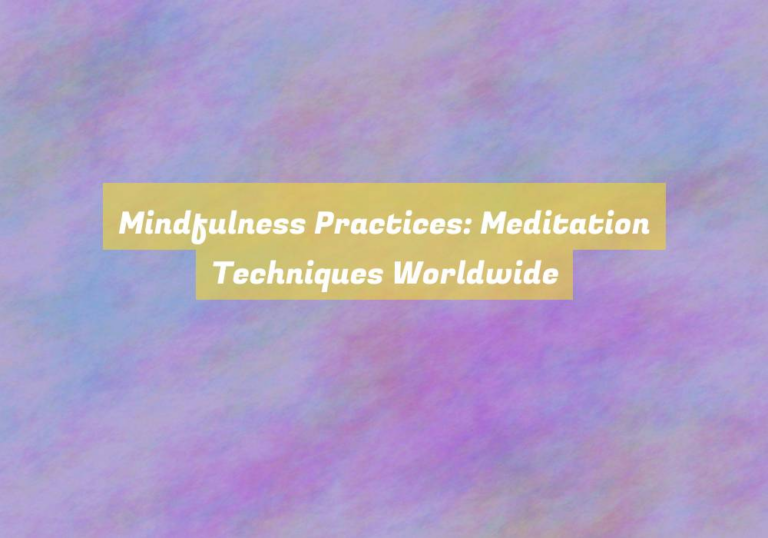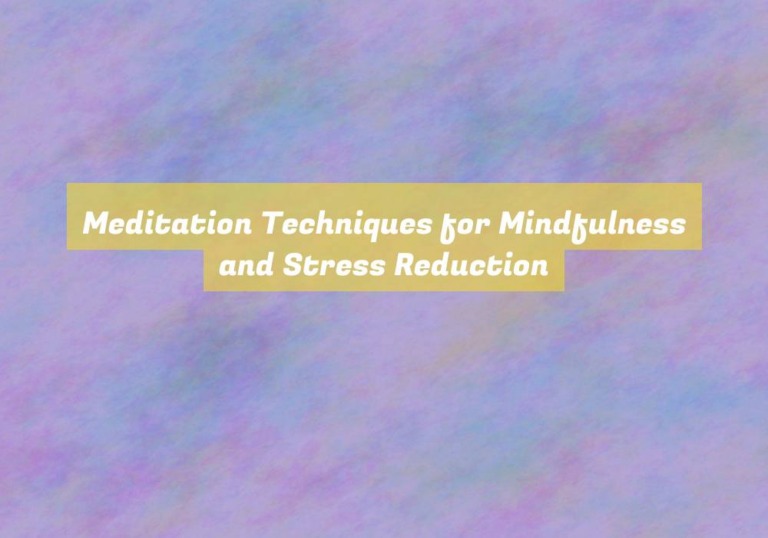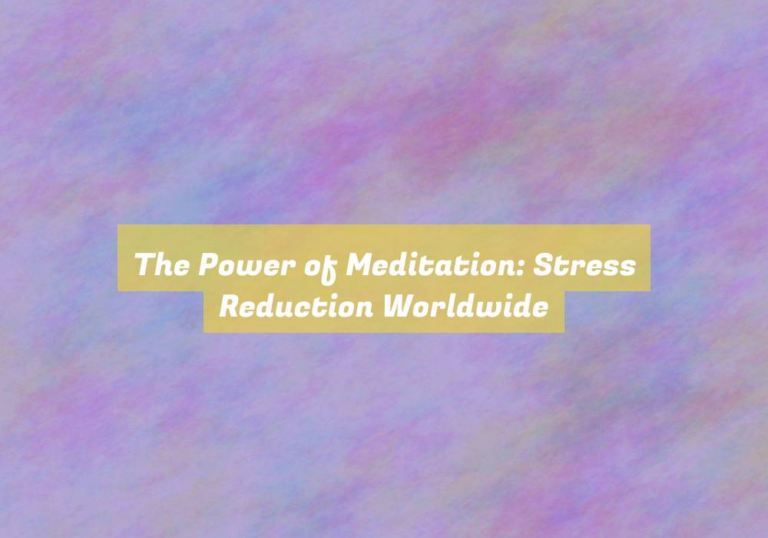Guided Meditation: A Path to Mindfulness Worldwide
As you navigate the complexities of modern life, guided meditation has emerged as a powerful tool for cultivating mindfulness and inner peace. Originating from ancient Eastern traditions, this practice has gained widespread recognition and adoption across diverse cultures worldwide.
The impact of guided meditation on mental health and well-being has been extensively studied and praised by experts. However, the influence of this practice extends far beyond individual benefits, shaping societal trends and attitudes towards holistic wellness.
Its potential to transform our collective consciousness and create a more mindful world is a topic that continues to captivate the attention of researchers and practitioners alike.
Origins of Guided Meditation
In the ancient traditions of various cultures, guided meditation has been a practiced method for achieving mindfulness and inner peace. Many cultures, including ancient Indian and Chinese civilizations, incorporated guided meditation as a way to connect with the spiritual and inner self.
In India, the practice of Dhyana, or meditation, dates back to around 1500 BCE and is a key component of Hindu and Buddhist traditions. Similarly, in ancient China, Taoist and Confucian traditions emphasized the importance of meditation as a means to achieve harmony and balance within oneself and the universe.
Guided meditation has also been a significant part of the spiritual practices in indigenous cultures across the globe. Native American tribes, for instance, have used guided meditation in their healing ceremonies and vision quests for centuries. The Aboriginal people of Australia also have a rich tradition of using guided meditation as a way to connect with the land, ancestors, and the Dreamtime.
These ancient traditions laid the foundation for the widespread adoption of guided meditation as a tool for achieving mindfulness and inner peace, transcending cultural and geographical boundaries.
Global Adoption and Cultural Influence
With its roots in diverse ancient cultures, guided meditation has transcended geographical boundaries and found resonance across the globe, influencing a myriad of cultural practices and belief systems.
In Asia, itG??s deeply intertwined with traditions like Buddhism and Hinduism, where mindfulness and meditation have been practiced for centuries.
In the West, it has been embraced as a tool for stress reduction, personal growth, and spiritual development. The adoption of guided meditation has also permeated various cultural expressions such as art, music, and literature, shaping and enriching them with its principles of mindfulness and inner reflection.
The global influence of guided meditation is evident in the integration of mindfulness practices into educational curricula, corporate wellness programs, and healthcare systems worldwide. Different cultural perspectives have contributed to the evolution of guided meditation techniques, resulting in a rich tapestry of approaches and styles.
As it continues to gain traction, guided meditation serves as a universal bridge, connecting individuals from diverse backgrounds through the common pursuit of inner peace and self-discovery.
Benefits for Mental Health and Well-being
Embracing guided meditation can significantly enhance your mental well-being and overall health. By incorporating meditation into your daily routine, you can experience reduced stress, anxiety, and depression. The practice of focusing your attention and being present in the moment allows you to cultivate a sense of calm and inner peace. This, in turn, can lead to improved emotional regulation and a greater sense of overall happiness.
Additionally, guided meditation can help you develop a greater self-awareness, enabling you to better understand your thoughts and emotions. This heightened awareness can empower you to manage your reactions to various stressors and challenges more effectively. Over time, you may find that your ability to concentrate and maintain mental clarity improves, leading to a greater sense of mental resilience and well-being.
Furthermore, the practice of guided meditation has been linked to improved sleep patterns, which are essential for maintaining optimal mental health. As you learn to relax your mind and body through meditation, you may find that youG??re better able to achieve restful and rejuvenating sleep, ultimately contributing to your overall well-being.
Future Trends and Impact on Society
As guided meditation continues to gain popularity globally, its future impact on society is evident in the increasing integration of mindfulness practices into various aspects of daily life.
More and more workplaces are incorporating mindfulness programs to reduce stress and increase productivity.
Schools are introducing mindfulness education to help students manage emotions and improve focus.
In healthcare, guided meditation is being used as a complementary treatment for various conditions, showcasing its potential to revolutionize traditional medical practices.
As technology advances, we can expect to see an increase in virtual reality and augmented reality meditation experiences, making mindfulness more accessible to people worldwide.
Furthermore, the growing interest in mindfulness retreats and wellness tourism indicates a shift towards prioritizing mental well-being in leisure and travel.
With the rise of social media and online communities, the sharing of guided meditation resources and experiences will continue to foster a global culture of mindfulness and interconnectedness.
As a result, the future impact of guided meditation on society is poised to be transformative, influencing how we work, learn, heal, and connect with one another.
Conclusion
In conclusion, guided meditation is a powerful tool for achieving mindfulness and improving mental well-being.
Its origins can be traced back to ancient traditions, and its global adoption has had a significant impact on individuals worldwide.
The practice offers numerous benefits for mental health and has the potential to shape future societal trends.
Embracing guided meditation can lead to a more mindful and balanced life, making it a valuable practice for people from all walks of life.

